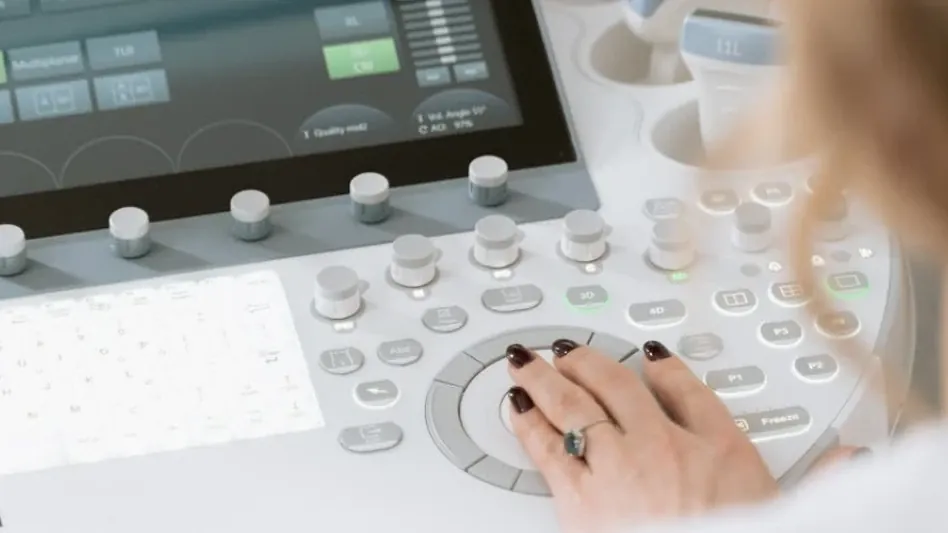Mayo Clinic is at the forefront of integrating artificial intelligence (AI) and real-world data to enhance precision medicine. By leveraging advanced technologies and data-driven methods, Mayo Clinic aims to improve patient care and clinical decision-making. This article delves into the innovative approaches and collaborations that are driving these advancements.
Leveraging Generative AI for Clinical Decision-Making
Introduction to Atropos Health’s Federated Healthcare Data Network
Mayo Clinic has partnered with Atropos Health to utilize its federated healthcare data network. This platform provides detailed, accurate consultations based on peer-reviewed, real-world data, which is crucial for addressing complex medical queries. Atropos Health’s generative AI capabilities offer reliable and evidence-based answers, outperforming general-purpose large language models (LLMs) like ChatGPT and Google Gemini. Such advancements are pivotal in a healthcare setting where accurate and timely responses can significantly impact patient outcomes.
The collaboration between Mayo Clinic and Atropos Health aims to bring a paradigm shift in how healthcare professionals approach complicated medical questions. By exclusively relying on peer-reviewed, real-world data, Atropos Health ensures the provision of answers grounded in empirical evidence. This setup proves especially beneficial when dealing with rare genetic conditions or complicated treatment plans where traditional research may fall short. Moreover, the ability to consult a vast repository of healthcare data empowers physicians to make informed decisions, leading to enhanced patient care and treatment efficacy.
The Role of ChatRWD in Real-Time Data Access
A significant breakthrough in this collaboration is the launch of ChatRWD, a chat-based interface that allows clinicians to access real-world data in real-time. This innovative tool has the potential to revolutionize the way medical data is utilized at the point of care. Dr. Peter Noseworthy, chair of cardiac electrophysiology at Mayo Clinic, is exploring how ChatRWD can surface insights at the point of care. This capability drastically reduces the time required to gather, clean, and analyze data, enabling quicker clinical decision-making.
Traditionally, the process of data extraction and analysis could take months, delaying critical decisions. By leveraging AI-driven Prognostograms, ChatRWD provides near-instantaneous, research-grade information, which is invaluable in urgent care scenarios. The efficiency of real-time data access means that clinicians can now focus more on patient care rather than sifting through extensive records and datasets. This not only enhances the speed of response but also ensures that the decisions made are backed by comprehensive and accurate data analysis.
Enhancing Data Reliability and Suitability
Real World Data Score (RWDS) and Real World Fitness Score (RWFS)
Atropos Health’s platform includes a scoring mechanism to assess the reliability and suitability of healthcare-specific data. The Real World Data Score (RWDS) and the Real World Fitness Score (RWFS) provide snapshots of data quality and appropriateness for answering specific medical questions. These scores help users select the most suitable datasets based on various criteria, ensuring high-quality and relevant data for clinical use. The availability of these scores is particularly beneficial for healthcare professionals looking to make data-driven decisions confidently.
The scoring mechanism evaluates datasets based on size, completeness, patient timelines, and how well the question criteria are represented. This ensures that the data being used for consultations and decision-making is not only accurate but also relevant to the specific medical context. By implementing RWDS and RWFS, Atropos Health helps in streamlining the selection process for high-quality datasets, minimizing the risk of biases or inaccuracies that can occur with less rigorous data sources. This contributes significantly to the reliability and precision of the medical insights being generated and applied in clinical settings.
Comparative Study of LLMs in Healthcare
Saurabh Gombar, adjunct faculty at Stanford Healthcare and chief medical officer at Atropos, conducted a study comparing the accuracy and efficacy of five LLMs, including healthcare-specific models like OpenEvidence and ChatRWD. The study revealed that general-purpose LLMs often fell short in reliably answering physicians’ queries. In contrast, healthcare-specific LLMs like OpenEvidence and ChatRWD produced actionable, reliable evidence 42% to 60% of the time, highlighting their superiority in clinical settings. This finding is crucial as it validates the need for specialized AI models in healthcare.
The study underscores the importance of domain-specific models, which are trained on healthcare data and designed to meet the unique needs of medical professionals. General-purpose LLMs, while versatile, may lack the nuanced understanding required for complex medical queries. On the other hand, healthcare-specific LLMs like ChatRWD are trained to interpret and analyze medical data accurately, providing clinicians with reliable insights. This differentiation ensures that the AI tools being used in medical practice are both effective and trustworthy, fostering greater confidence among healthcare providers in adopting such technologies.
Accelerating Research and Clinical Trials
AI-Driven Prognostograms for Quick Insights
The deployment of AI tools like ChatRWD enables the generation of research-grade information quickly and efficiently. Dr. Noseworthy explains that traditional methods of data extraction, cleaning, and statistical analysis are time-consuming. AI-driven Prognostograms expedite this process, providing near-instantaneous insights that can significantly impact clinical decision-making, especially in critical care scenarios. This immediate access to high-quality data helps in forming accurate diagnoses and effective treatment plans without the usual delays.
Such advancements in AI technology not only improve the efficiency of research but also enhance the overall quality of care provided to patients. The ability to quickly access and analyze vast amounts of data allows healthcare professionals to respond to medical queries with precision and confidence. This is particularly beneficial in critical care settings where timely interventions are crucial. AI-driven insights enable clinicians to make informed decisions faster, potentially saving lives and improving patient outcomes significantly.
Democratizing Access to Clinical Trials
Mayo Clinic is also focused on democratizing access to clinical trials and reducing health disparities. Dr. Tufia Haddad emphasizes the underrepresentation of racial-ethnic minorities and underserved rural-based populations in clinical trials. By extending the reach of clinical trials through a decentralized program, Mayo Clinic aims to bring more cures to more people. AI and real-world data platforms play a pivotal role in identifying trends and outcomes in these underrepresented groups, informing more inclusive and effective treatment protocols.
The decentralized clinical trial program represents a significant step forward in making advanced medical treatments accessible to a broader population. By leveraging AI to identify and address disparities, Mayo Clinic is working towards a more equitable healthcare system. This initiative ensures that more diverse patient populations are included in clinical research, leading to better treatment options and outcomes for all. The use of real-world data helps in tailoring clinical trials to meet the needs of diverse populations, ultimately resulting in more comprehensive and effective healthcare solutions.
Piloting AI Tools for Precision Medicine
Real-World Data-Driven Insights at the Point of Care
Dr. Noseworthy and his colleagues in the cardiac group at Mayo Clinic have begun piloting ChatRWD, intrigued by its potential to generate data at the point of care. The real-world data-driven insights from ChatRWD and similar platforms hold significant promise for improving the precision and timeliness of medical responses. This is particularly beneficial for rare and complex conditions that fall outside the scope of traditional clinical trials, offering new hope to patients who may have limited treatment options.
By integrating AI tools into daily medical practice, Mayo Clinic is setting a new standard for precision medicine. The capability to generate and apply real-world data insights directly at the point of care ensures that medical decisions are both timely and well-informed. Such advancements empower healthcare professionals to address complex medical issues with greater accuracy, ultimately leading to improved patient outcomes. This proactive approach in using AI for real-time data analysis marks a significant leap forward in the field of medicine.
Collaboration with Atropos Health
Mayo Clinic is leading the charge in the integration of artificial intelligence (AI) and real-world data to advance precision medicine. By utilizing cutting-edge technologies and data-driven strategies, Mayo Clinic’s goal is to enhance patient care and inform clinical decision-making. They employ innovative approaches and form strategic collaborations to drive these advancements forward. AI and extensive data analysis enable Mayo Clinic to tailor medical treatments to individual patients more effectively, predicting health outcomes and personalizing care. Their collaboration with tech companies, academic institutions, and healthcare organizations amplifies these efforts, ensuring that they remain at the forefront of medical innovation. These partnerships support the development of sophisticated algorithms and machine learning models, which are critical in analyzing vast amounts of patient data. The combination of AI and real-world data facilitates an unprecedented level of precision and accuracy in diagnostics and treatment planning. Through these concerted efforts, Mayo Clinic is making significant strides in transforming the landscape of modern healthcare.









